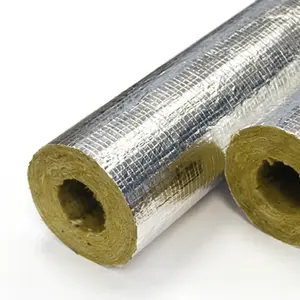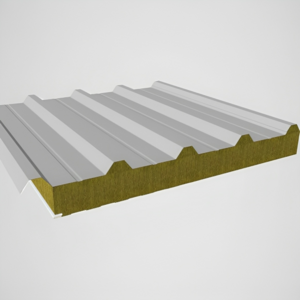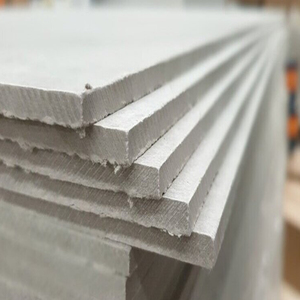Rock wool, or mineral wool, is an insulation material made from natural basalt rock and recycled slag, offering exceptional thermal and acoustic insulation. It is highly fire-resistant, withstanding temperatures over 1,000°C without melting, making it ideal for projects prioritizing safety. Rock wool also resists moisture, preventing mold growth and maintaining air quality. Its durability ensures long-lasting performance, while its eco-friendly production aligns with sustainable building practices. Suitable for walls, roofs, floors, and industrial applications, rock wool provides energy efficiency, noise reduction, and fire safety for various construction needs.
Description
What is Rock Wool?
Rock wool, also known as mineral wool or stone wool, is a high-performance insulation material made from natural basalt rock and recycled slag. During its manufacturing process, these materials are melted at high temperatures and spun into thin fibers that resemble wool. The resulting product is formed into various shapes such as boards, batts, or rolls, making it suitable for different construction needs.
Benefits of Rock Wool for Construction Projects
Excellent Thermal Insulation
Rock wool is highly effective at providing thermal insulation due to its dense fiber structure. It helps maintain a comfortable indoor temperature by minimizing heat loss during winter and reducing heat gain during summer. This insulation efficiency contributes to lower energy consumption and utility costs, making it a sustainable choice for energy-conscious projects.
Superior Fire Resistance
One of the standout features of rock wool is its natural fire resistance. Since it is made from stone, it can withstand temperatures over 1,000°C (1,832°F) without melting or releasing toxic gases. This makes it an ideal material for projects where fire safety is critical, such as in commercial and industrial buildings or high-rise residential structures. Rock wool helps contain fires, offering valuable time for evacuation and emergency response.
Sound Absorption and Acoustic Insulation
The fibrous structure of rock wool makes it an excellent sound absorber, reducing noise transmission between rooms or from external sources. This makes it particularly beneficial in buildings like offices, schools, or residential complexes where noise control is important. By creating a quieter indoor environment, rock wool contributes to increased comfort and productivity in commercial spaces.
Moisture and Mold Resistance
Rock wool is naturally resistant to moisture, which prevents the growth of mold and mildew. This property helps maintain indoor air quality and prolongs the lifespan of the insulation, making it a durable solution for areas prone to humidity, such as basements and exterior walls. Its moisture resistance also makes it suitable for projects in coastal or damp environments.
High Durability and Longevity
Rock wool insulation is extremely durable, retaining its thermal and acoustic properties over time without sagging or settling. Unlike some other insulation materials, rock wool maintains its structural integrity even when exposed to changes in temperature and humidity, ensuring long-term performance. This reliability makes it a good investment for projects that require long-lasting, low-maintenance solutions.
Sustainability and Environmental Benefits
Rock wool is an eco-friendly option due to its use of natural and recycled materials in production. Additionally, it is fully recyclable at the end of its life cycle, reducing its environmental impact. The energy savings it enables through its insulation properties further contribute to reducing the carbon footprint of buildings, aligning with green building practices.
Applications of Rock Wool
Rock wool is versatile and can be used in a wide range of construction applications, including:
Wall Insulation: Ideal for exterior and interior walls, providing thermal and acoustic insulation.
Roof Insulation: It can be used in pitched roofs and flat roofs, ensuring thermal efficiency and fire safety.
Floor Insulation: Suitable for both ground and suspended floors, helping to maintain consistent temperatures.
Industrial Applications: Commonly used in soundproofing machinery rooms, power plants, and HVAC systems due to its thermal resistance and noise control properties.
Why Choose Rock Wool for Your Next Project?
Rock wool is an all-in-one solution for thermal, fire, and sound insulation needs, making it a preferred choice for modern building projects. Its ability to enhance energy efficiency, improve safety, and offer long-term durability ensures a solid return on investment. Whether your project is a commercial space, an industrial facility, or a residential building, rock wool provides a high-quality, sustainable insulation option that meets diverse construction demands.







